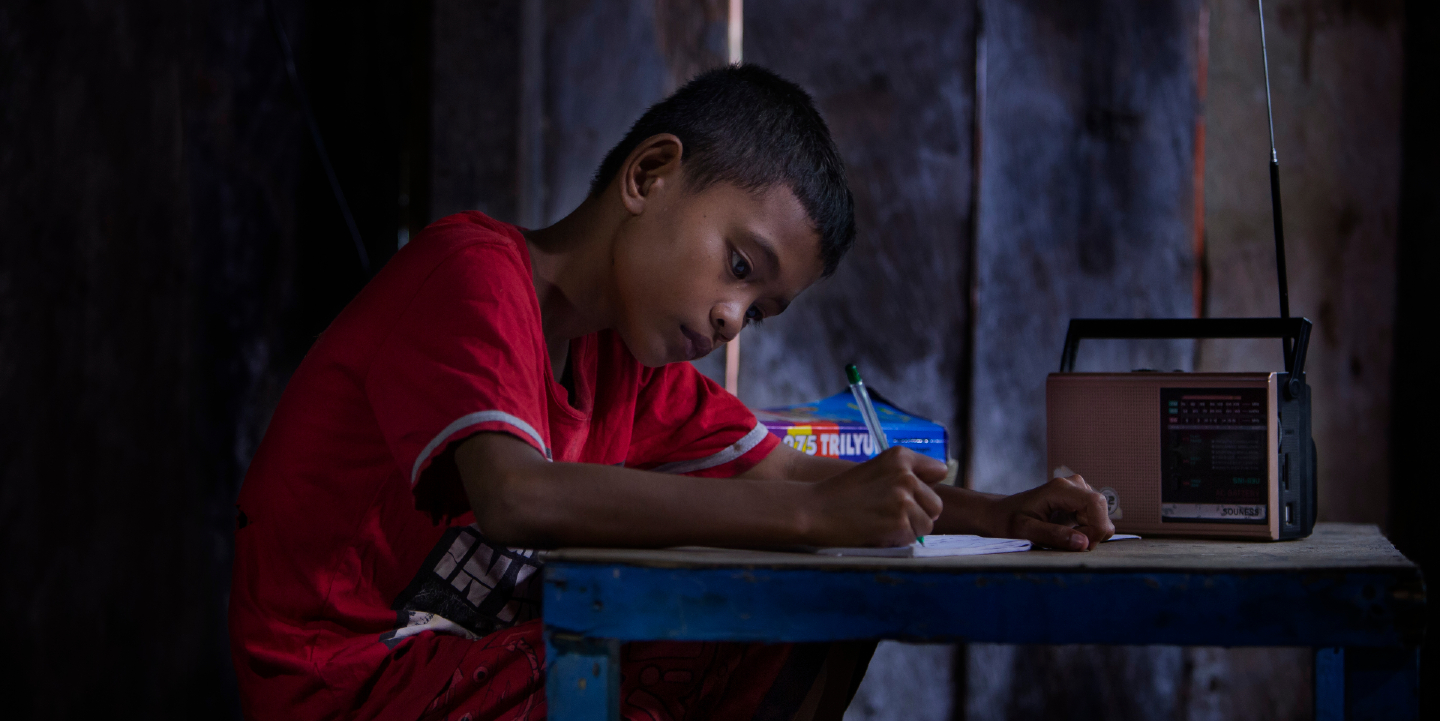
Building partnerships in remote education during COVID-19
Research 14 Dec 2020 6 minute readACER is helping to build resilient education systems through a new initiative that connects Australian expertise in remote education with partners in the Indo-Pacific region.
More than two billion students have been impacted by the COVID-19 pandemic, with school closures affecting around 80 per cent of the world’s student population (UNESCO, 2020). Disruptions to education systems due to COVID-19 pose a real threat to the learning, skills and human development priorities of Indo-Pacific countries. Through well-planned responses from governments, there is an opportunity to build more inclusive, efficient and resilient education systems.
Australian Strategic Partnerships in Remote Education (ASPIRE) connects Australian experience and expertise in remote education with partners in the Indo-Pacific region to provide learning continuity, access and equity, in particular for disadvantaged students. Managed by ACER on behalf of the Australian Government’s Department of Foreign Affairs and Trade (DFAT), ASPIRE aims to contribute to immediate and long-term educational and economic benefits for the Indo-Pacific region.
ASPIRE is supporting a limited number of partnerships to assist Indo-Pacific partners to build or expand on their existing remote education programs. A small grants process facilitates the establishment of these partnerships.
Indo-Pacific governments and educational institutions interested in accessing Australian expertise are being identified through ASPIRE. These Indo-Pacific partners are connected with Australian institutions with proven models, tools and resources in remote education that can assist them to develop a proof of concept. This is based on the individual context, systems and policies of the Indo-Pacific partner.
‘The great thing about ASPIRE is that it is demand-driven,’ says Dr. David Coleman, DFAT Senior Education Advisor. ‘It responds to requests from Indo-Pacific partners wanting to access Australian experience and expertise. This ensures that partnerships are relevant and that Australian tools and services provided through ASPIRE are tailored to local educational, cultural and technological contexts.’
ASPIRE supports Indo-Pacific partners to lead and implement high-quality, innovative and evidence-based remote teaching and learning approaches that align with, and add value to, existing education initiatives. It also provides them with access to Australian knowledge, experience and expertise in remote education, enhancing their current responses to COVID-19.
Through ASPIRE, Australian partners are able to collaborate and share their expertise and innovations in remote education with Indo-Pacific partners. They can also build partnerships to endure beyond the life of ASPIRE.
As part of ASPIRE, ACER conducted a review of the evidence on what works in remote schooling. The review draws on international literature and lessons from Australia to inform educational responses to COVID-19. The literature review found that Australian remote education programs are most effective when they incorporate five key principles: support for teachers; parental involvement; student engagement; community partnerships and inclusion and equity.
Australia’s experience in distance and remote teaching and learning provides relevant insights into effective models and enabling conditions for developing a long-term response to remote learning practices. In particular, remote and distance learning models applied in Indigenous settings can offer some helpful lessons in effective mechanisms for delivery, including partnerships and engagement with parents and the community.
One of Australia’s key strengths is in developing evidence-informed policies and institutional mechanisms to support effective remote education programs, including standards and regulatory frameworks. Australia also has extensive experience implementing learning models and approaches that place students and their wellbeing at the centre of learning.
Australia is known for its collaborative and multi-agency approach to strengthening education systems; most recently demonstrated by its rapid shift to remote education during the initial stages of COVID-19. This has involved strong collaborative coordination between federal and state departments of education (and health), schools, TVET institutions and universities, research institutions and regulatory bodies. Through ASPIRE, Australian partners will draw on these experiences and the five key principles to support the individual needs of Indo-Pacific partners.
The pandemic has created a unique situation where Australian experiences and expertise can add value to existing responses in the region. Through ASPIRE, Australian and Indo-Pacific partners can learn from each other and create new and exciting possibilities for remote education in the region. ■
ASPIRE supports and contributes to DFAT’s Partnerships for Recovery: Australia’s COVID-19 Development Response.
Further reading:
Learn more about the ASPIRE project.
Read the literature review.
Read DFAT’s Partnerships for Recovery: Australia’s COVID-19 Development Response.
Find out more about ACER’s education and development work.
